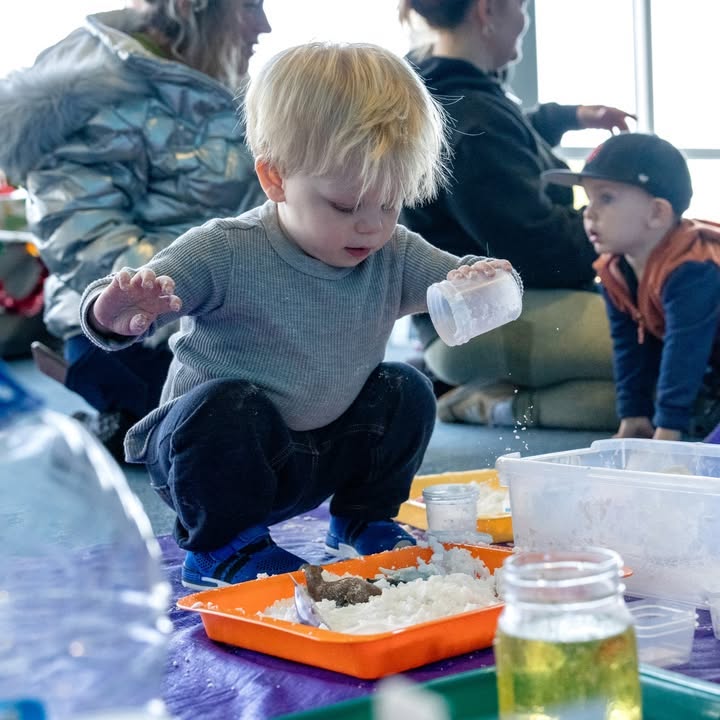- Toddler Programs offer foundational wildlife education promoting curiosity and environmental stewardship.
- Activities such as Toddler Tuesday, Discovery Garden, and Toddler Trek foster developmental milestones.
- Participating toddlers develop conservation awareness and interactive zoological learning.
- Zoology and conservation insights behind the design and implementation of the programming.
- Integration of animal behavior knowledge and environmental science into toddler programming.
As the Toddler Programs prepare to return next week, the excitement among educators, parents, and young learners is palpable. These programs have been crafted to offer much more than just playful interactions. They form a crucial part of early childhood education through a strategic lens focusing on zoology and environmental conservation. The aim is to imbue toddlers with curiosity about the natural world while laying the foundation for future environmental stewardship.
The Toddler Programs encompass a series of diverse offerings, primarily Toddler Tuesday, Discovery Garden, and Toddler Trek. Each of these activities is designed to be engaging and informative, ensuring that children gain valuable insights while enjoying playful experiences. Toddler Tuesday is an interactive experience where children mingle with peers and explore various animal-themed stations. This activity promotes social interaction and communication skills while sparking curiosity about different species and their habitats.
Discovery Garden, on the other hand, provides a hands-on experience with nature. Toddlers are introduced to gardening through sensory-based activities that teach them about plant biology, growth cycles, and the importance of flora in ecosystems. This tactile approach helps to cement their understanding in a way words alone cannot. In addition, exposure to biodiversity at an early age helps foster respect for all living things and an appreciation of ecosystems’ complexity.
Another integral part of the Toddler Programs is the Toddler Trek, where young learners engage in guided tours around zoo exhibits. These treks allow toddlers to observe animal behaviors, learn about their dietary needs, and understand the various roles animals play in the environment. It provides children with the opportunity to witness wildlife interactions up close, a crucial step in establishing a connection between human actions and their impact on animal life.
These early interactions serve as the building blocks for conservation awareness. By experiencing the natural world firsthand, toddlers develop empathy and a sense of responsibility for nature. This awareness is nurtured further through storytelling sessions that focus on endangered species and conservation efforts. Through tales that captivate their imagination and stir feelings of empathy, toddlers begin learning the importance of protecting diverse species and habitats.
The intricate design of the toddler programming draws heavily from zoology and environmental sciences. Zoologists and educators collaborate to ensure each activity is based on sound scientific principles. The selection of animals and plants children interact with is intentional, often highlighting species with particular ecological significance or unique behaviors. By incorporating accurate and age-appropriate scientific knowledge, these programs elevate toddlers’ understanding beyond surface-level enjoyment.
Moreover, animal behavior becomes a central teaching tool in the programs. Observing animal behavior allows toddlers to learn about communication, social structures, and adaptation. It instills in them an appreciation for the survival strategies of various species. For instance, observing how elephants use their trunks not only piques interest in anatomy but also illustrates adaptation and problem-solving in wildlife.
Aligning early education with themes of wildlife conservation is a powerful way to influence future generations. By establishing these connections early, children are more likely to grow up with values that emphasize conservation and environmental respect. As such, Toddler Programs serve as a critical element in the broader mission of conservation education and wildlife protection.
In conclusion, the integration of zoological and ecological insights into the Toddler Programs makes them a significant educational resource. Though these programs may start with simple activities and playful learning, they are rooted in the broader goals of fostering environmental awareness and a lifelong appreciation for the natural world. With the return of these programs, there’s renewed potential to shape young minds into informed and responsible stewards of the environment.
The upcoming sessions promise to enrich the lives of toddlers while supporting parents and educators in their efforts to raise environmentally conscious children. By participating, children and their guardians contribute to a sustainable future, equipped with the understanding and motivation to protect our planet’s invaluable biodiversity.
*****
Source Description
Toddler Programs return next week! 🎉 We look forward to welcoming your little learners back for Toddler Tuesday, Discovery Garden, and Toddler Trek – learn more at the link in our bio!

